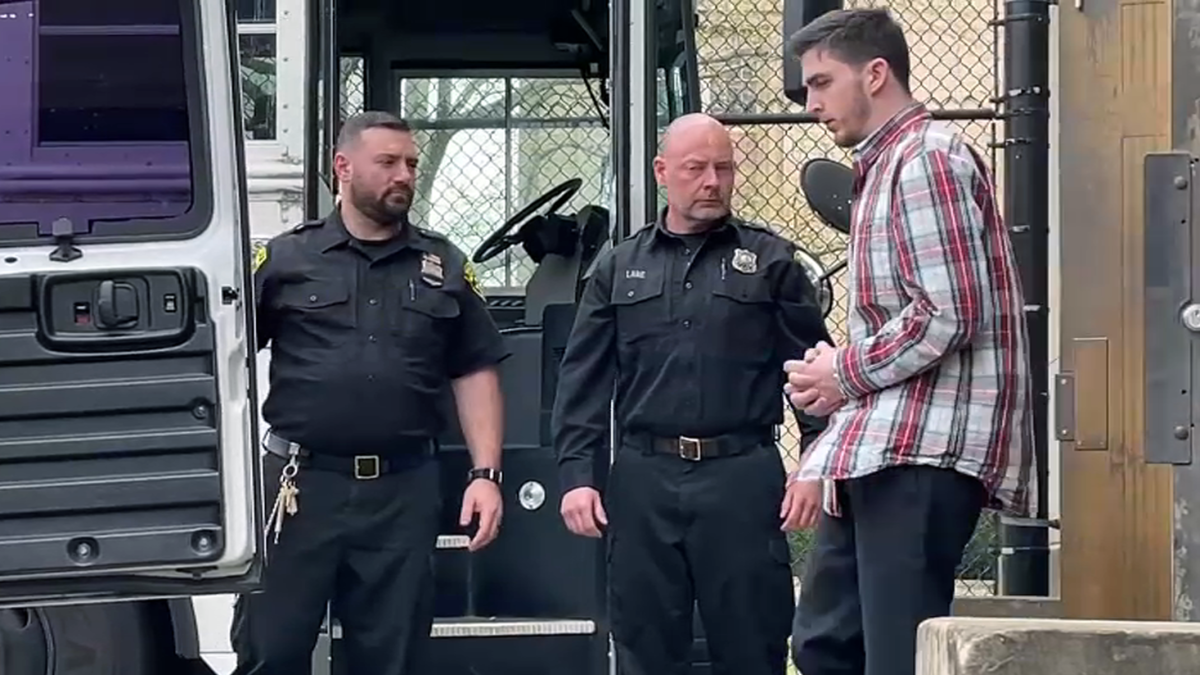NEW YORK – A 22-year-old Long Island man was sentenced to six months in prison and must register as a sex offender for taking photos from the social media accounts of more than a dozen women when they were in high school, editing them to make them sexually explicit, then posting them on a pornography website for years, prosecutors say.
Patrick Carey, who posted the “deepfake” images, or images or videos that are not real, but made so by extreme manipulation, until hours after his arrest in 2021, also shared the identifying information. women’s personal information, including their full names, phone numbers and addresses, and encouraged other users of the porn site to harass them and threaten them with violence, according to court documents.
Carey pleaded guilty in December to multiple counts under the “deepfake” scheme, including promoting a sexual performance by a child, harassment aggravated by hate crimes and stalking.
At Tuesday’s sentencing, the Seaford man was ordered to stay away from each of the 14 victims: a judge issued protective orders that will last the legal maximum of eight years each. You will also be subject to 10 years of probation in addition to prison terms and sex offender requirements.
According to the 2021 indictment, approximately 11 women contacted Nassau County detectives between January and September of that year to report that they had found images of themselves on a pornographic website. Many of the women said the images, taken when they were in high school, were reposted to the website from their own social media platforms and edited to suggest they were engaging in sexual behavior.
The images had been altered in what is also known as “deepfake”, a technology by which Carey convincingly superimposed the faces of the victims onto separate images of women engaged in sexual conduct. These published images were accompanied by their full names, addresses and telephone numbers, among other identifying information.
Separately, in November 2020, another woman reported to the Nassau County Police Department’s Special Victims Squad that she had found a sexually explicit image of herself, taken as a minor, on the same site. Pornographic web.
Each of the women had attended MacArthur High School in Levittown and believed Carey, another alumnus, was the person who edited and posted their images and contact information. Several of the victims told police they had received social media notifications that Carey had “captured” some of the images that appeared to be edited from the website of his social media accounts.
Most of the messages containing images of the victims came from three different usernames controlled by Carey, prosecutors said. He was actively posting the footage from around August 2019 until his arrest in September 2021.
“Patrick Carey targeted these women, altering images he pulled from their social media accounts and the accounts of their family members and manipulating them using ‘deepfake’ technology to create pornography that it streamed on the internet,” the Nassau County prosecutor said. , Anne Donnelly, in a statement Tuesday.
“These incredibly brave women re-enacted their depraved behavior and reported it to the authorities. They were not afraid and they were not discouraged,” he added. “Carey will now be serving a prison sentence and will be subject to rigorous supervision for the next 10 years once he is released.”
New York State currently has no criminal laws regarding “falsified” or digitally manipulated sexually explicit images, which Donnelly called a significant loophole easily exploited by child pornographers. She has proposed legislation to establish a series of crimes and offenses related to “deepfakes” to deter such behavior.
WHAT ARE DEEPFAKES?
A “deepfake” is a video, sound, or image that uses artificial intelligence to create a convincing imitation of a real person’s image or voice. Although some “deepfakes” may be harmless, they have also been used for revenge porn, fake news, and fraud.
In another 2021 case, a Pennsylvania mother was accused of creating videos and photos of underage girls on her daughter’s cheerleading team in a protracted effort to harass them and get them kicked off the team. .
Tom Cruise also became the target of such manipulation on TikTok around the same time.
Developers raced to better understand and track down “deepfakes” to prevent the spread of misinformation. In June, artificial intelligence researchers from Facebook and Michigan State University claimed to have developed software capable of revealing where these types of fakes come from.

